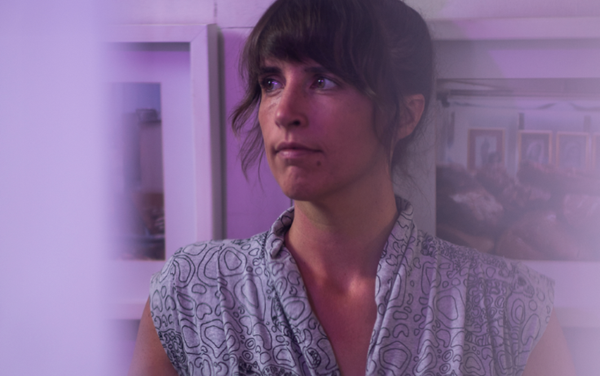The Common Thread with Bridget Kearney of Lake Street Dive
Bridget Kearney double-majored in jazz bass at the New England Conservatory of Music and English at Tufts University. During this time, Kearney and three of her fellow conservatory students founded Lake Street Dive. Kearney has always been collaborative, dabbling in chamber pop with the Brooklyn group Cuddle Magic, bluegrass with the now-defunct Boston outfit Joy Kills Sorrow, and Ghanian music as part of a duo with songwriter Benjamin Lazar Davis.
Q: How has secondhand or vintage clothing played a role in shaping your personal style?
A: Shopping second-hand stores was my first opportunity to buy my own clothes at all because they were more affordable! There was a great secondhand store in Iowa City, Iowa, where I grew up, called Ragstock. Me and my friends would do our shopping trips there instead of going to the department stores or the mall and find so many cool things, with such a variety of styles and patterns and fabrics and eras, and they were all marked down to a reasonable price. I think when something is affordable you can also take more risks with your personal style shopping. You may find something that you're unsure if you can ‘pull it off.’ but you can take a chance on it if it's cheap and in this way expand your ideas of what it's possible for you to wear. If you don't end up wearing it, you can always donate it back to the secondhand store!
This kind of shopping extended into college and then into tour life with Lake Street Dive. We would seek out vintage stores wherever we went, it was fun to find regional variety in what might be available. Down South we would find all of our Western button ups and cowboy boots, up North we would get our cozy flannels for the winter. In Hamburg, Germany, there was a secondhand store that specialized in athletic wear, and we all walked away with vintage tracksuits. I still have mine. These days I buy a lot of clothes from the vintage rack at the hair salon around the corner from me in Brooklyn. The woman who stocks it has such cool taste and the same principles still apply as back in Iowa City at Ragstock: The selection is more unique and varied there than at any big box store at the mall, and more affordable so I can continue to take some chances and expand my sense of style!
Q: As someone who travels and performs, how do you incorporate sustainability into your lifestyle on the road?
We travel so much that you get accustomed to living out of a suitcase. Which is a good lesson in how much one really needs. I think it puts some healthy limitations on how many things I can pick up along the way on each tour, which leads to less waste when I get home as well. And whenever my closet starts to fill up again, I pull out the things I haven't worn in a while and drop them off at the Goodwill. I love imagining that they might have a next chapter and someone might love them as much as I did.
Q: Do you think fashion can be a tool for protest or cultural commentary—and have you used it that way?
A: It definitely can! It can be a tool for protest in very overt ways, like wearing a shirt with a slogan on it. And it can also be a tool in more subtle ways, like choosing a wardrobe that resists any norms in the current fashion trends that don't feel true to yourself.
Q: Is there a song, lyric, or creative project of yours that connects—directly or indirectly — to themes of justice, slowing down, or conscious living?
A: The Lake Street Dive song 'Making Do' is very much on the theme of sustainability and climate change. I think these lyrics, written by our drummer Mike Calabrese, speak to these themes the best, and how hard it can be to slow down and live consciously when so many parts of society are pushing you to keep plowing ahead:
Everybody knew
Reading all the same headlines
Blowing through the traffic signs
Looking for the cops
But what could you do?
Can't you see it clear as glass?
Going through it if we crash
But we're never gonna stop
Q: Secondhand September is about rethinking how and why we shop. How do you connect with the idea of slowing down consumption—in fashion or beyond?
A: I'm glad Oxfam is highlighting these issues and think Secondhand September is a helpful reminder to all of us! There is so much out there that is being sold to us all the time that it is easy to forget that it's even happening. I'll be taking Secondhand September to remember to waste not/want not, only to buy the things that I need and make careful choices about the sources they are coming from and what kind of companies my dollars as a consumer are going to support.
